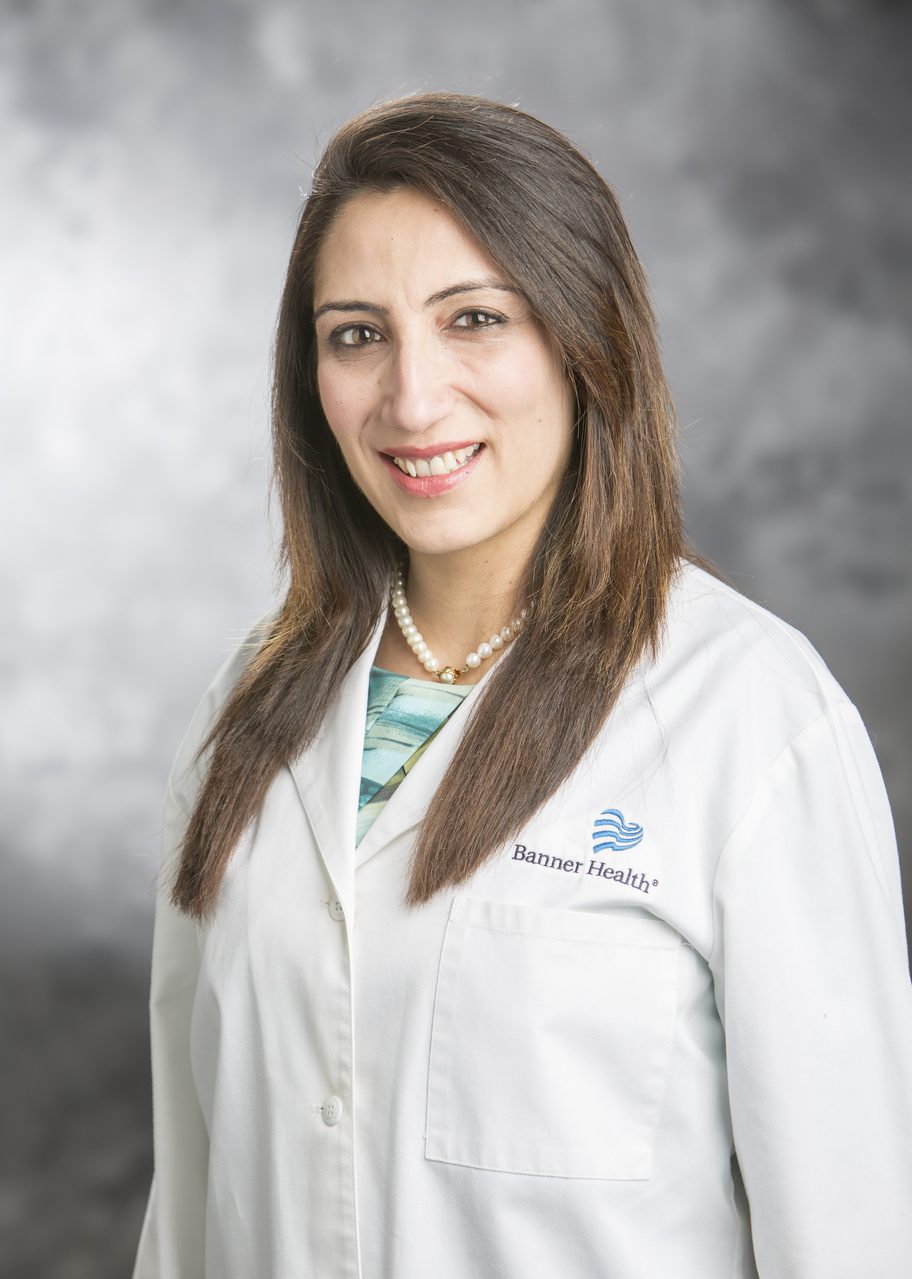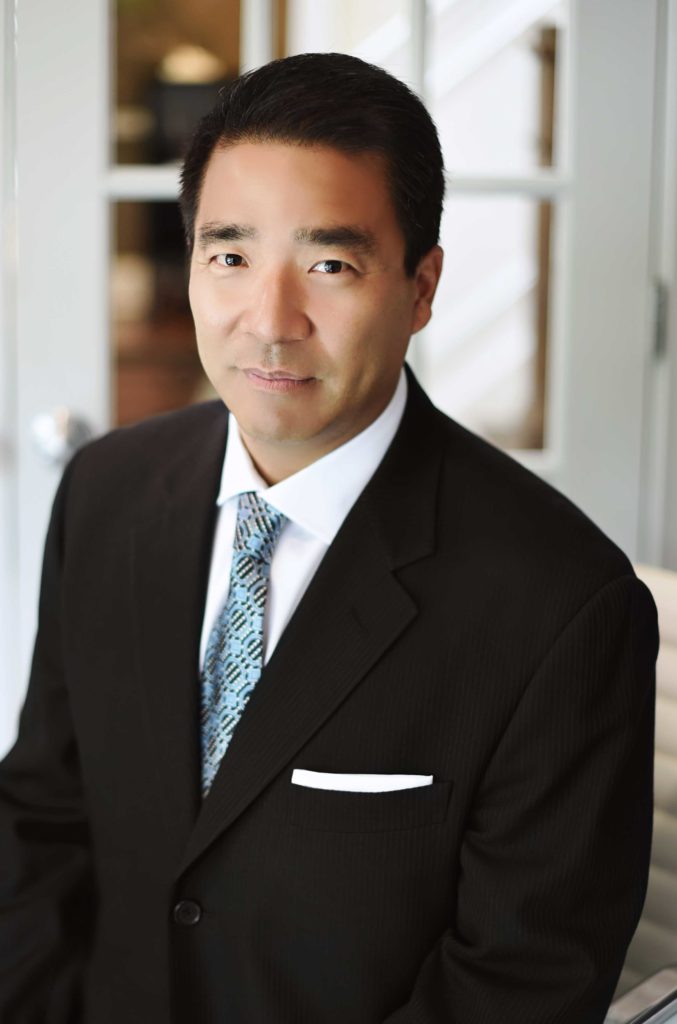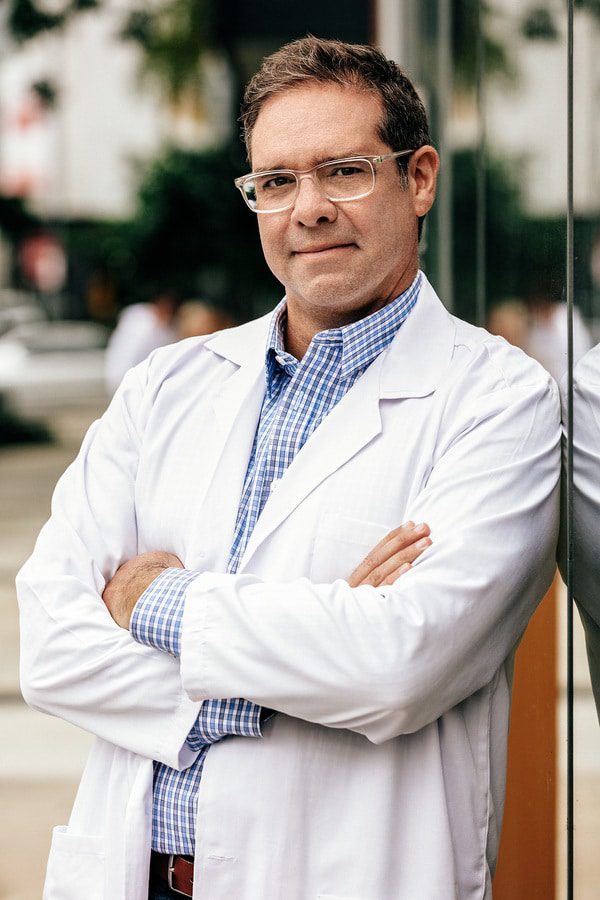Dr. Ayushi Chugh wears many hats as a board-certified neurologist, wife, mother, writer, poet. She was a delight to converse with and impressively sociable, given that her work as a neurologist in morbid hospital settings involves dealing with highly challenging, critically sick, and often somber cases daily.
After medical school, she completed her neurology residency from Westchester Medical Center at New York Medical College and subsequently a fellowship in neuromuscular medicine from the Hospital for Special Surgery at New York Presbyterian-Weill Cornell Medical Center. After that, she moved to Arizona and joined one of the Banner Health family of hospitals in the Phoenix Metropolitan area, caring for the neurological needs of populations in the heart of the desert. She gave an emotional, insightful, and knowledge-packed interview about neurology, her patients, social life, personal relationships, and the innumerable humbling experiences she went through during the Global Pandemic.
The Path to Medicine
“Both my parents being academicians, growing up, our home felt like a library with bookshelves everywhere! Our childhood was enriched with the gift of travel and books. They were not into the usual tourist stuff. I remember visiting existing homes of teachers, poets, and writers on their research path, such as that of the Irish poet Yeats. They taught us to focus on constantly learning wherever we were. I believe I was about 14 years old when I would often help my parents in caregiving for my sick grandparent, and probably this sentiment spearheaded an inspiration to strive towards medical school,” Dr. Chugh says. “As a high schooler, I joined hospital volunteer programs to give me an insight into the medical world.” It is not uncommon to meet many medical professionals who determine to follow such a path at a young age, inspired many a time by a brush or an in-depth encounter with a humbling, life-changing experience in the family. Dr. Chugh is no different.
The Defining Moment to Neurology
“Life’s career path is rarely straightforward. I worked in an ICU for about a year before discovering that a career in neurology lay ahead,” she began. “Amidst Intensive Care Units, doctors care for the most critical of cases- coma, brain bleeds, strokes. The ICU intently set me up for a career in neurology.”
Challenges of being a Neurologist.
In the past, Neurology was associated as being a field involving in-depth testing and complicated diagnoses without many treatment options. “This is a great time to be a neurologist!”. She added, “We’ve come a long way in this field that combines the art of storytelling with Show and Tell of thorough physical examination. Scientific advancements just within the past decade have remarkably enhanced the capacity to treat diseases with a whole new armamentarium of pharmacological and management strategies. Being a good listener helps chalk out appropriate lab tests as well as Neuro diagnostics among the likes of EEG, MRI or EMG, and others; which are extensions of the neurological exam, and thereby guide treatment strategies.” While neurology may feel intimidating and complicated to many, Dr. Chugh says, “The Brain is a fascinating organ as its optimal functioning is closely interconnected to the optimal working of other body organs. Therefore, it’s important to have a birds-eye view of all the body systems while taking care of neurological pathologies and inculcate getting to the root of the problem, often involving lifestyle strategies with a focus on mind-body medicine .”
Touching Career Stories
Medical doctors often live beyond the edge. As a result, their life gains inspiration from the intense joy of watching patients heal from a life-threatening disease to times of remorse for those they cannot save. Dr. Chugh has some incredible patient stories up her sleeve. One of which she felt truly made a difference to a patient’s life. She emphasized how timely clot buster therapy (Intravenous thrombolytic) for an elderly patient’s stroke dramatically improved her lost speech and limb movement ability, thus proving to be the bridge between communicating with her once estranged son when he eventually visited the hospital. “With her son at her bedside, watching her with renewed strength, she was able to hold his hand and have a heart-to-heart conversation with him, something that wouldn’t have been possible without these timely stroke therapies. Time is Brain. I still get teary when I think about that day.”
While that day is special for Dr. Chugh, she says her job is her most significant source of joy, with big and little patient triumph stories. Be it working with the multispecialty ICU team on hypothermia protocols to help ‘cool the body and brain,’ watching people come ‘back to life’ post-life-threatening cardiac arrest or in the clinic setting helping post-stroke spasticity patients with EMG guided injected muscle relaxer therapies, or newer multiple sclerosis and migraine therapies that help people to get back to the lives they once enjoyed, is a miracle. Working in underserved populations, to be able to make a difference in the lives of those that feel forgotten and unheard, is what drives me to wake up every day and do what I do. I love my job and the role I get to play in my patients’ journeys to good health.”
Being on the Frontline of the Global Pandemic
With over half a million deaths in the United States so far, the pandemic ravaged the country, leaving many frontline workers more susceptible to become affected. Dr. Chugh relayed the challenges to Top Doctor Magazine. “Being among those specialists taking care of in-house consults, especially being the only ones of a particular specialty, we did not have the option of Telemedicine. Neurological evaluation, especially of those critically ill, on oxygen or ventilator therapy, involves being up close and face to face with the patient to gather as much information.” Dr. Chugh was the only neurologist in her community hospital during the pandemic, and just like her peers in other parts of the country, she too eye-witnessed the ramifications of COVID-19 on the brain. She expressed gratitude for being part of a large-hearted team of doctors, nurses, and support staff.
In the early days of the pandemic, with fear of the unknown and scarcity of PPE, Dr. Chugh recounted how frontline healthcare workers had to find innovative ways to make PPEs (Personal Protective Equipment) from everyday materials to keep self and others safe. “We formed groups on social media and brainstormed ideas across the nation on how we could better help patients and protect ourselves. “The days would start from leaving behind meals with Post-it notes for kids at home on virtual school, then at work carefully ‘donning and doffing’ PPE for every patient encounter, to changing out of scrubs in the garage post-hospital duties, was a broad outline of juggling work and home safety. “I connected with a like-minded tribe of healthcare workers. We all spent our every waking moment off work gathering information on the novel virus in a fast-changing landscape to equip ourselves better and, in turn, help public awareness to deter morbidity and mortality as best possible. This was the common thread uniting our minds.”
Interests outside of Medicine
“Love for literature had always been in my genes and my respite since childhood,” she says. Thus, with this combination of uncharted territory in the hospital and dearth of outside socialization, she gravitated to using pandemic inspired writings, poetry, and essays both as self-therapeutic as well as a means to metaphorically explain those behind-the-scenes tribulations of healthcare workers to the community, in the hope that everyone kept their guard up. “The inspiration always was to forge a stronger doctor-patient relationship and to explore the philosophical rationale for this ongoing humanitarian crisis. “Dr. Chugh was grateful to have found a platform to express her thoughts via KevinMD blog, The Physician Outlook magazine, and AZ India newspaper.
Most significant Changes in Medicine and Lessons from the Pandemic
“The soaring use of Telemedicine has been a game-changer not only nationally but globally to help overcome barriers to medical outreach. Going forward, many of the changes we applied for continuity of patient care seem here to stay, especially by improving medical access to those with mobility, transportation, or cost limitations. Strides made on the scientific research front with timely vaccine development reflect how technological advancement overcoming red-tape and expedites getting results. On an individual level, this may be Nature’s message to help us focus on things that matter such as maintaining good health, forging meaningful relationships, and caring better for the environment.”
The solution to the Pandemic
“In a perfect world, we wish the virus could vocalize its plans,” she says with a smile, “but till then, it’s all up to us. The solution to any significant healthcare crisis is never a quick fix. Before the COVID-19 pandemic, we have been dealing with large epidemics of chronic medical illnesses such as diabetes, heart disease, obesity, to name a few. Human choices and behavior remain the common denominator for the solution. Pandemic solutions involve collective, empathetic community decisions. Listening to healthcare experts and following public health preventative measures, encouraging vaccinations are key. ”
Conclusion
Dr. Chugh, a mother, and wife worked hard to keep things moving at home just as they should in the hospital—during the pandemic. Of course, her family members, her husband, also a frontline physician, and her father were highly supportive. She also gives credit to her children, who she feels manifested extreme resilience during all this. My first was born just before my residency, and my second was born during the fellowship, so they have always seen me working through it all over the years. Our society must give credit to the silent voices such as our children and recognition to essential workers such as teachers that rose to the pandemic challenges alongside healthcare workers.
Being at the frontline of a deadly virus spread, caring for patients, eye witnessing severe sickness and death, and having to deliver such heartbreaking news to patient families would break just anyone. But Dr. Chugh—the beautiful, empathetic, and incredible medical expert who doubles as a poet— and many such other frontline workers are not just anyone. They had upheld the fabric of the society when the United States was at its worst hit by the COVID-19 virus. To date, they all continue to work towards upholding that sentiment that every human deserves to live a sick-free and healthy life.
At TopDoctor Magazine, our mission is to foster connections within the health and wellness community, acting as a vital bridge between doctors and patients and facilitating collaborations between medical companies and healthcare professionals.
Our purpose extends to empowering our readers, providing them with the knowledge to make well-informed healthcare and lifestyle decisions.
We take pride in being the ultimate resource for interviews with health and wellness leaders, delivering trending medical news, and covering a wide range of healthy living topics.










0 Comments